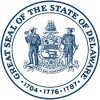The big banks were helped; not so the small borrowers
A few years ago the back pages of the Cape Gazette, and newspapers across the country, were filled with advertisements for sheriff sales.
The ads were stark and simple, black type in a black box. But the stories behind them were complex and filled with financial jargon.
Also behind those ads were millions of men and women who lost their homes, their jobs and what they hoped was their share of the American dream.
A current movie, “The Big Short,” based on a book of the same name by Michael Lewis, tells the story of the Crash of 2008. It takes a dry subject and turns it into entertainment.
Which, potentially, could make it an important contribution to our political discussion in 2016.
The movie shows how investors, played by Christian Bale, Steve Carrell and Ryan Gosling, bet against the American mortgage industry and, by extension, the nation’s economy.
It’s hard not to root for them, even though their success meant failure for everyone else.
They, at least, were honest about what they’re doing, unlike the banks and rating agencies who created the mess.
Banks made loans to people who couldn’t afford them, enticing them with artificially low interest rates.
Later, when the higher rates kicked in, they couldn’t keep up with the payments.
While living in Dover, I recall one young couple who borrowed money to buy a $400,000 house and $50,000 SUV.
He had a modest income; she had none. When the house caught fire, it turned out they didn’t even have insurance.
How that slipped by the bank, I don’t know, but those were the go-go years.
A popular right-wing narrative is that the federal government - read liberal Democrats - forced the banks to make these loans. The banks had no choice. That, according to this version, is the reason for the crash.
There are problems with this story:
• Yes, the government encouraged banks to provide credit in neighborhoods where they did business by accepting deposits. Nobody forced them to make ridiculous loans like the one mentioned above.
• Republicans have been in the ascendancy for more than a generation, beginning in 1980 with Ronald Reagan. For the first six years of the George W. Bush’s administration, Republicans controlled both houses of Congress.
It’s not credible that Democrats could have forced their will on a powerful and often dominant Republican Party.
• Bad loans to people who couldn’t afford them were only a part of the story. “The Big Short” tells how big banks, with the help of corrupt rating agencies, created fraudulent investment products.
They took bad loans, whose mortgage-holders were already behind in payments, and bundled them together.
You might think that putting together loans that, individually, were bad bets would make for a bundle that was a terrible bet.
If so, you wouldn’t qualify to be one of the financial wizards at Standard & Poor’s, a top rating agency.
They (supposedly) examined the loans and then waved a magic wand over them to give these piles of what the movie describes as dog poop their highest AAA rating.
Why? Because the banks paid the rating agencies for their services. If the banks didn’t like the ratings, they took their business elsewhere. The whole system was corrupt.
• Watch hearings of something like Jamie Dimon of JPMorgan Chase testifying before Congress. You don’t even have to listen. Just watch the body language.
Financial titans like Dimon don’t take orders from anybody.
The Tea Party movement began with a televised rant from Rick Santelli.
He famously suggested that President Obama - a month after he assumed office - should set up an online referendum so that people could vote on whether they “really wanted to subsidize the losers’ mortgages.”
Losers.
We had bailed out the big banks to the tune of trillions of dollars, but when a relatively measly $75 billion was proposed to help individual homeowners who had borrowed too much, conservatives went ballistic.
We couldn’t help the homeowners who were losing their homes, we were told, because that would create a “moral hazard.” It would encourage bad behavior.
But “moral hazard” is only for the little people. The big banks, who nearly wrecked the American economy, were made whole. Hell, they even received their bonuses.
Did some people borrow foolishly? Yes, but they were no more foolish than the banks - including the late, great Wilmington Trust of Delaware - and far less criminal.
This contempt for people who need help continues today, right here in Delaware.
As part of a settlement, Delaware received money from the big banks for their role in the financial crisis.
Last year, the General Assembly, controlled by the Democrats, used $5 million of that money to help balance the budget.
This year Attorney General Matt Denn is once again calling for the remaining $29 million to be used as it was originally intended, for crime prevention, substance abuse treatment and housing.
“Our proposal in January, and our proposal today, is that these funds be used to help lift up our state’s hardest hit communities,” Denn said in a release.
“That is what is called for by the settlement agreement,” Denn continued, “and speaking for a moment as an elected official whose top priority is fighting violent crime, investing in these communities is also what we should be doing if we really want to bring down the rate of violent crime.”
Maybe this year the General Assembly will listen.
And if enough people get angry about the financial shenanigans depicted in “The Big Short,” maybe Congress will listen.
Don Flood is a former newspaper editor living near Lewes. He can be reached at floodpolitics@gmail.com.



















































